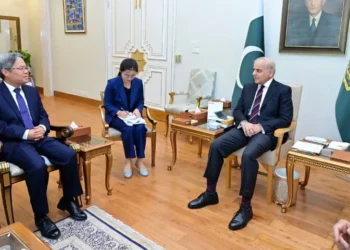Eleven Pakistani food and beverage enterprises are presenting a wide range of high-quality products at SIAL Shanghai 2025, Asia’s leading food industry exhibition, held from 19–21 May. The event marks Pakistan’s strategic push to leverage rising Chinese demand under the landmark China-Pakistan Free Trade Agreement (CPFTA). Organized by the Trade Development Authority of Pakistan (TDAP) and Pakistan’s Consulate General in Shanghai, the national pavilion highlights 20 product categories such as rice, sesame seeds, corn, dried fruits, pasta, fruit concentrates, and halal-certified dairy goods.
Spanning 200,000 square meters, the three-day expo has attracted 5,000 exhibitors from 75 countries, featuring over 350,000 food products. Shehzad Ahmad Khan, Pakistan’s Consul General in Shanghai, emphasized the country’s expanding footprint in the global food sector, citing a 13.83% year-on-year surge in food exports to $3.959 billion during the first half of fiscal year 2024-25 (July–December 2024), per data from the Pakistan Bureau of Statistics (PBS).
Khan underscored the CPFTA’s role in accelerating bilateral food trade growth. “Pakistan’s exports to China, including rice, seafood, sesame seeds, boiled beef, spices, dried fruits, and processed foods, have risen substantially,” he noted. “Chinese investments are also increasing in Pakistan’s food processing and agricultural technology sectors, emphasizing modernization of production, packaging, and halal certification to align with China’s market requirements.”
At the Pakistan Pavilion, Usman Akram, representing Pure Foods Ltd., reported enthusiastic responses to the company’s tropical fruit-based offerings. “We’ve secured initial orders for our mango nectars,” Akram revealed. “Chinese buyers appreciate our preservative-free concentrates, which resonate with their preference for natural ingredients.”
Abdullah Shahid of Tooba Rice Mills, a first-time exhibitor but a veteran rice exporter to China, expressed optimism about broadening market access. “While we’ve supplied rice to China for more than ten years, this expo has connected us with new buyers seeking basmati, non-basmati varieties, and sesame seeds,” Shahid remarked. “We’re engaging with current and prospective partners to solidify our foothold in the market.”
















